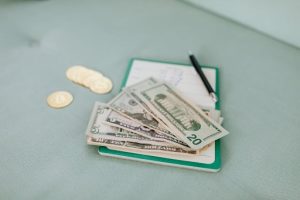
You’ve embarked on a saving journey and have started to save a decent amount of money every single month. Your budget looks really impressive and you love seeing the money you’ve managed to avoid spending.
Now, you have one other question to ask yourself. What should you do with the money you save? Should it just linger in a bank account, or are there better things you could do with it?
Well, here are three ideas to help you get the most out of your savings:
Put it in a savings account
As a general rule, your bank account should only contain the money that you intend to spend each month. Your budget should calculate how much this is, and you can add a bit extra as a buffer.
The rest of the money – in other words, everything you’ve saved – should go into a savings account. Well, it doesn’t ALL need to go in there, but a good portion of it should. Why? Because savings accounts give you interest on the money in them. As such, your savings will grow year after year. Do some research to find the best savings accounts with the highest interest rates to help you save even more money without doing anything extra.
Use it to protect your family
Saving a lot of money every month can be super beneficial as it gives you more money to spend on essential things to protect you and your family. Specifically, it can finally help you afford a good health insurance package that covers everyone. This insurance can be super expensive, which is why you might need to save money to be able to afford the premiums.
Unlike things like home or car insurance, it’s often harder to lower a health insurance premium. It’s something you need to spend money on because there is every chance that you’ll need health care in the future. Unfortunately, free health care doesn’t exist in the US, so you will always have to pay. Saving money and using some of the cash to go towards a better health insurance plan could help you save a lot of money in the future.
Stash some in an emergency fund
The final thing you could do with your savings is to put some away in an emergency fund. This fund is separate from your savings account as you need access to it in case of emergencies. The idea is that you keep the money there and only use it when you desperately need it.
For example, you get into a car crash and your insurance doesn’t cover the full cost of repairs. Here, you may need some extra money to help you pay for everything. To avoid overspending and making it harder for you to pay bills, you can use your emergency funds to deal with the situation. Your cash flow isn’t interrupted, so you’re still in a stable financial position.
These ideas show you what can be done when you save money. It opens up opportunities to save even more money and take better care of yourself and your family!